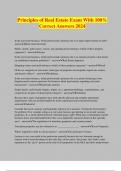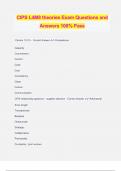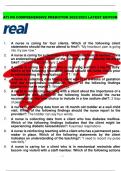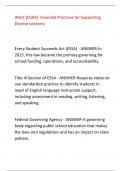Summary
Summary for the first chapter on political instability
- Institution
- PEARSON (PEARSON)
This is an in-depth summary of this whole chapter One, and why there was key tension between the monarchy and Parliament. One key question that keeps rising in this chapter is how revolutionising each event or rule.
[Show more]








